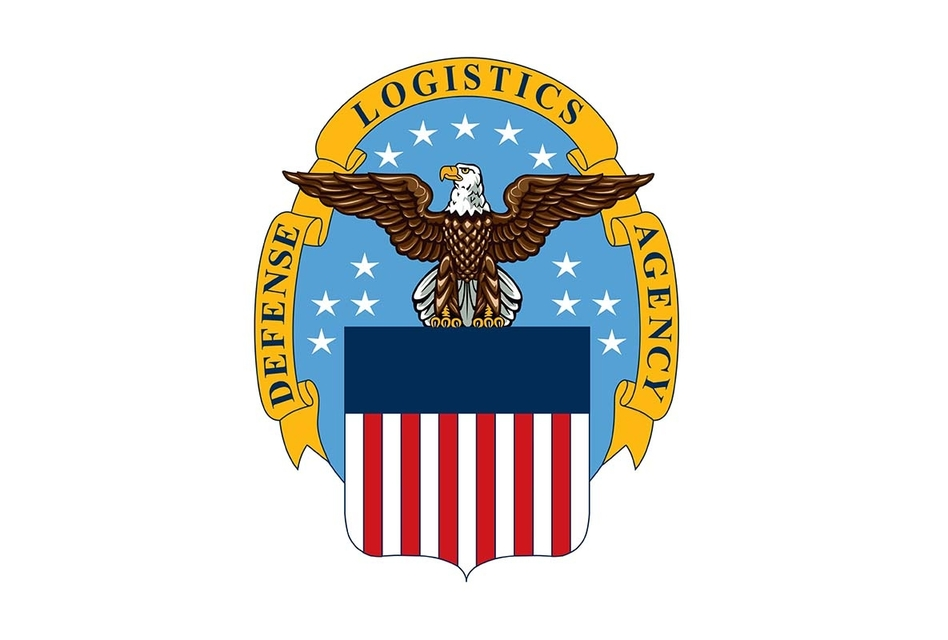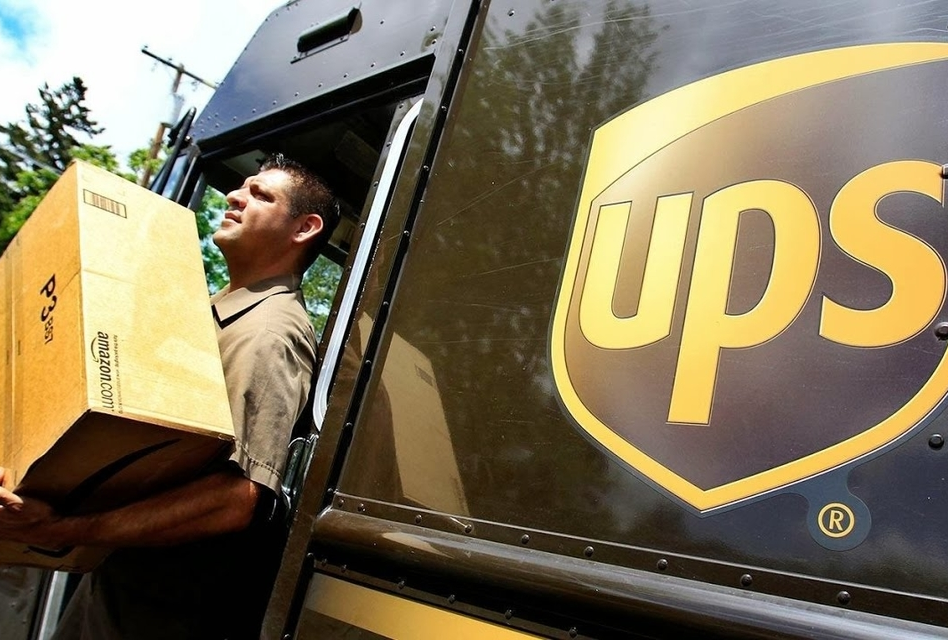Blockchain has become a valuable tool for a multitude of industries. Additionally, it is becoming an integral part of the supply chain. Its ability to streamline inventory management and track the shipment of goods has the potential to update traditional business practices in a dramatic fashion.
But what about blockchain logistics use cases? As shown by several companies and government organizations below, blockchain is making quite an impact on business logistics worldwide.
Article Contents
Increasing Relief Efficiency with Blockchain

Entities involved: U.S. Defense Logistics Agency
Project status: Research on the potential blockchain uses in future relief efforts is in progress
Sources: DLA press release
The U.S. Defense Logistics Agency (DLA), in charge of the supply chain for all branches of the American military, recently held an event focusing on how blockchain can be used to improve collaborative efforts within the DLA.
Using Hurricane Maria as a case study, the DLA in conjunction with its Continuous Process Improvement (CPI) team, identified various areas in which blockchain could have improved relief efforts in Puerto Rico. Current DLA practices are managed by different agencies, making it difficult to coordinate responsibilities, as well as track resources and, as a result, 20,000 pallets of water were wasted in the Hurricane Maria relief process. Although blockchain is only being discussed, its eventual implementation into the DLA’s systems has the potential ability to save many lives, and decrease the time needed to provide relief services to regions affected by a natural disaster.
Blockchain for Pharmaceuticals
Entities involved: DHL, Accenture
Project status: DHL and Accenture have developed a working prototype of the blockchain, meaning there are only a few more steps before it is ready to be properly implemented into their systems.
Sources: Accenture press release, Blockchain in Logistics Report
As many as one million lives are lost each year due to counterfeit medications. Global postal provider DHL along with the major technology consulting company Accenture hope to decrease that number with blockchain.
The tandem released a trend report, detailing findings on a working prototype that tracks pharmaceuticals from the point of origin to the consumer, preventing tampering and errors. CIO at Chief Development Office, DHL Supply Chain, Keith Turner described his enthusiasm for the prototype saying,
“By utilising the inherent irrefutability within blockchain technologies, we can make great strides in highlighting tampering, reducing the risk of counterfeits and actually saving lives.”
The prototype was made up based in six different locations used to track pharmaceuticals across the chain. Manufacturers, warehouses, distributors, pharmacies, hospitals and doctors would all have access to the chain, ensuring the legitimacy of medications and preventing tampering through each step. The blockchain was able to handle more than 7 billion unique serial numbers and perform 1,500 transactions per second, signifying the prototype would be able to trace a significant amount of medications in a small amount of time.
Blockchain for More Efficient Bill of Lading
Entities involved: CargoX
Project status: CargoX has released its platform to the public, and now the company plans to expand the project to function with Letters of Credit.
Sources: CargoX press release
Bill of lading is a form of receipt detailing a list of a shipment of goods given by a carrier to the person or entity consigning the goods. Paper bills of lading can take up to ten days to process, while CargoX was able to cut that time down to four minutes with the use of blockchain and smart contracts.
CargoX ran a pilot project on the Ethereum blockchain shared between four parties: the Chinese exporter, the carrier/logistics provider, the consignee in Slovenia, and a release agent. CEO of CargoX, Stefan Kukman, praised the project saying,
“In our business, the standard is 2-10 days, so if we do it in four minutes, or even an hour, we’re doing great.”
FedEx Joins Hyperledger to Improve Its Services
Entities involved: FedEx, Hyperledger
Project status: Although FedEx has only recently joined Hyperledger, there is sure to be something in the works, although nothing has been brought to light at the moment.
Sources: Hyperledger press release
In May 2018, CEO of FedEx Fred Smith said that he believes blockchain is the “next frontier” for logistics. FedEx has taken the next step by entering into a partnership with Hyperledger, a project of the Linux Foundation made up of various organizations intended to advance blockchain technology in a collaborative effort. The goal is to improve logistics and transportation in the company through the utilization of a distributed ledger.
Using Blockchain for Port Clearance

Entities involved: Ideanomics, APMEN
Project status: The service is ready to be launched at both Shanghai and Guangdong ports, and the companies hope to expand the service to 16 other ports currently operated by APMEN.
Sources: Ideanomics and APMEN joint press release
It is estimated that the total value of imports and exports conducted by Shanghai and Guangdong ports is around $1.5 trillion annually. Shanghai is one of the busiest ports in the world, and Ideanomics in partnership with APMEN Trade Tech Co. plan on streamlining clearance processes by implementing blockchain into its online port clearance system. The goal of the project is to improve connectivity among cargo hubs in order to save time and trading costs.
Co-CEO of Ideanomics detailed the main function of the chain saying,
“We will integrate business data from various partners, establishing a risk control model in cooperation with a single window to provide risk control services for regulatory authorities and enterprises.”
Changing Cargo with Blockchain
Entities involved: Associated British Ports, Marine Transport International
Project status: At the moment, tests are being run on the blockchain, and MTI is working to enhance interoperability with existing information systems in the sector.
Owning 21 ports in England and Scotland, Associated British Ports (ABP) in collaboration with Marine Transport International (MTI) are performing an investigation into how blockchain can improve port connectivity as well as increase efficiency in daily operations. Although staying quiet on the specific uses of blockchain, Andrew Dunn, ABP’s Head of Communications, said,
“The provenance of cargo is of increasing importance. Hopefully, blockchain can improve the speed and efficacy of our operations.”
TradeLens: a New Blockchain Company by IBM and Maersk
Entities involved: IBM, Maersk
Project status: TradeLens currently has 92 participants and is expected to be released sometime in 2019.
Sources: IBM press release, TradeLens
Now that so many industries are beginning to realize the uses of blockchain, IBM and Maersk have teamed up to form a company intended to commercialize blockchain technology, TradeLens. The pair hopes to cut down the time associated with paperwork, which can often result in the waste of perishable goods. A study by the World Economic Forum shows that streamlining information through blockchain has the potential ability to increase trade by up to 15%. IBM and Maersk intend to make that potential a reality with TradeLens.
Blockchain for More Efficient Package Delivery

Entities involved: UPS
Project status: Although UPS has been awarded the patent, UPS Chief Engineering and Information Officer Juan Perez told the Wall Street Journal that he doesn’t “expect significant benefits” from blockchain in 2019. So although the company may be testing blockchain projects, it’s highly unlikely we’ll see anything in 2019.
Sources: UPS’ Blockchain patent application
United Parcel Service (UPS) hopes to provide its customers with faster, cheaper, and more transparent shipping. The awarding of a blockchain-based patent filed in August puts them one step closer to that goal. UPS, as described through the patent, may begin working on a blockchain intended to track shipments while simultaneously finding the most optimal route for delivery, all conducted without human interaction.
The blockchain will also have the ability to perform the necessary payments required by third-party shipping companies who may come into contact with a package. UPS hopes the system will cut the costs and time associated with package shipping, ultimately providing a quicker and cheaper service for their customers.
Blockchain to Make Leafy Greens Safer
Entities involved: Walmart
Project status: Suppliers should upload their data onto the blockchain by September 2019, which means that the adoption of blockchain in the food industry is about to ensue.
Sources: Walmart’s letter to suppliers, press release.
The world’s largest retailer, Walmart, has released their own food chain in partnership with IBM, and now they are giving their suppliers of leafy greens time until September 2019 to upload their data to their chain.
Walmart sent letters to their suppliers detailing the process of how they can join the Walmart Food Traceability Initiative. The idea of the blockchain is to prevent outbreaks of foodborne illnesses associated with leafy greens, such as the E. coli outbreak of 2018. The blockchain will eventually allow consumers to view the entire history of their leafy greens, from farm to store shelf. By using blockchain, it will be much easier to detect where E. coli outbreaks first occurred, allowing Walmart to remove only tainted greens from their shelves rather than their entire inventory.
Improving Temperature Monitoring of Pharmaceuticals with Blockchain
Entities involved: Swiss Post, Modum
Project status: MODsense has been finished, and is currently available through Modum.
Sources: Modum press release, MODsense press release
A collaboration between Switzerland’s national postal service, Swiss Post, and Zurich-based blockchain developer, Modum, is intended to “provide players in the pharma sector with a reliable and scalable process for monitoring the state of goods…” as stated in Modum’s press release regarding the partnership.
MODsense, as its been named, uses Modum’s temperature-logging devices paired with Swiss Post’s track-and-trace system to monitor the temperature of pharmaceutical products being shipped. The blockchain is intended to ease the burden associated with new regulations concerning temperature conditions of pharmaceuticals in transit.
More Blockchain Logistics Use Cases To Come in 2019
We will be closely watching for the real-life new blockchain cases for logistics to appear and will share them with you as well.
Did you like the article? Give your rating





Blockchain Insights
Join our mailing list to receive OpenLedger Insights publications weekly.
Thanks! Please check your inbox to verify your email address.
By clicking “Subscribe”, you’re accepting to receive newsletter emails from OpenLedger Insights every week. You can easily update your email or unsubscribe from our mailing list at any time. You can find more details in our Privacy Policy.